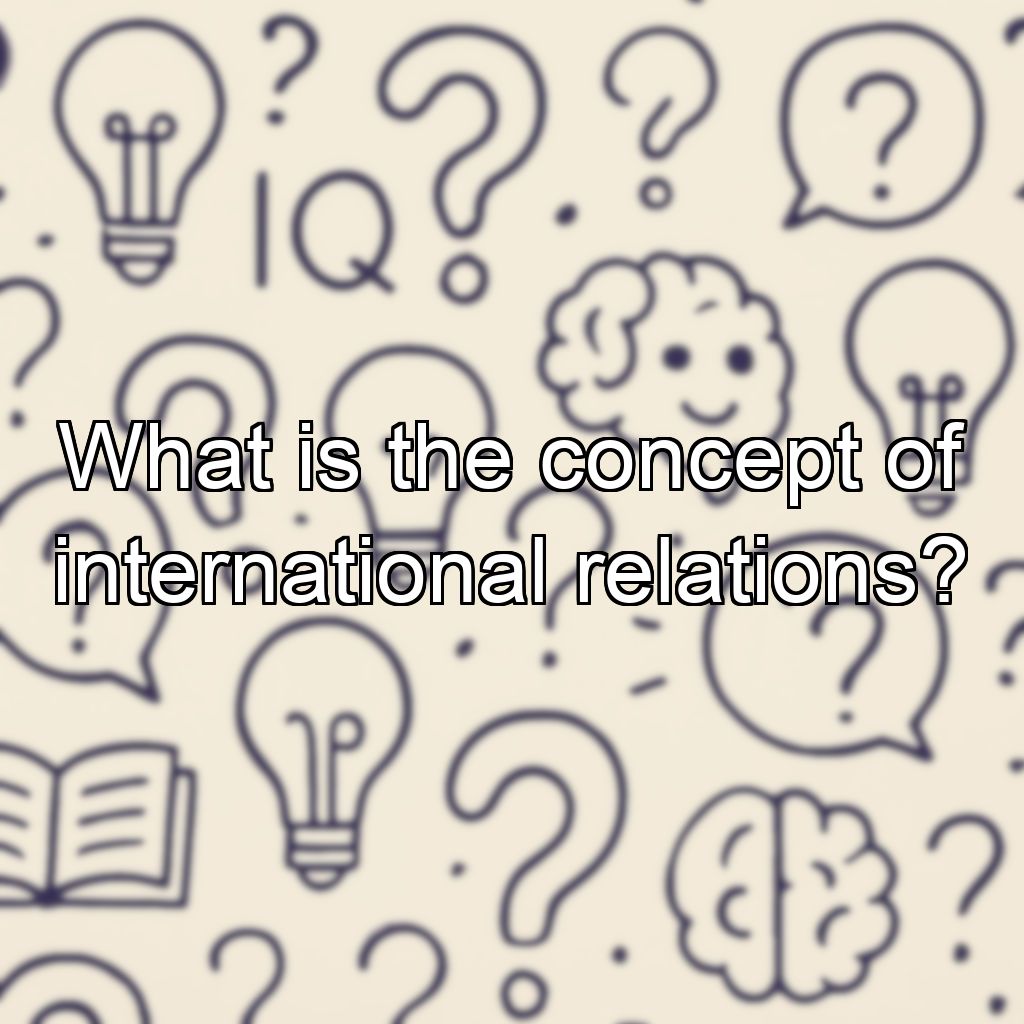What is the concept of international relations?

Concept of International Relations
International Relations (IR) is a field of political science that studies the interactions among states, international organizations, non-governmental organizations, and multinational corporations on the global stage. It examines how countries cooperate, compete, and confront each other over issues such as security, trade, human rights, and environmental challenges.
Key Aspects of International Relations
- State Sovereignty: The principle that each state has authority over its territory and domestic affairs, free from external interference.
- Power and Security: The study of how states use power to achieve security and influence others, often analyzed through concepts like balance of power and deterrence.
- International Law and Organizations: The role of international rules, treaties, and institutions (e.g., United Nations, World Trade Organization) in shaping state behavior and resolving conflicts.
- Globalization: The increasing interconnectedness of countries through trade, communication, and culture, leading to shared opportunities and challenges.
- Theories of IR: Several theories help explain international relations, such as Realism (focus on power and self-interest), Liberalism (emphasis on cooperation and institutions), and Constructivism (role of ideas and identities).
Importance of International Relations
Understanding international relations is crucial for addressing global issues like war, peace, development, poverty, climate change, and human rights. It helps policymakers, scholars, and citizens make informed decisions in a complex and interconnected world.